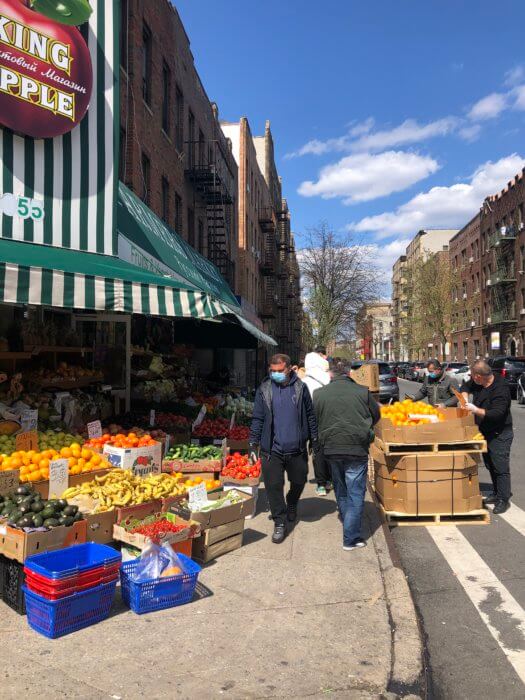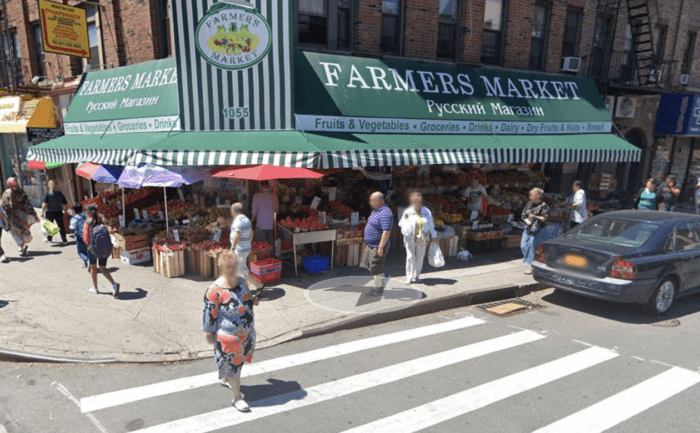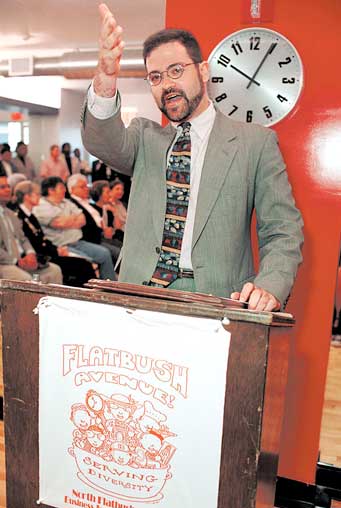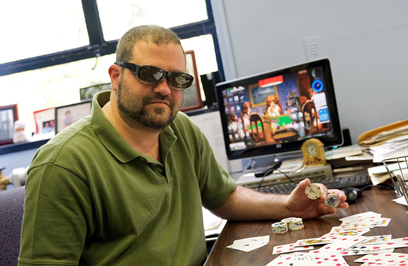As Brooklynites try to avoid close contact with each other during the coronavirus pandemic, Brighton Beach’s street-side fruit markets have become a potentially dangerous nuisance, according to neighborhood watchdogs, who report large crowds and operations blocking the sidewalk for pedestrians.
“Brighton Beach Avenue produce merchants are back to business-as-usual,” said local civic guru Craig Hammerman. “They crowd the sidewalk by extending their goods beyond their stoop sale permit allowances then occupy the opposite side of the sidewalk with produce for sale.”
Both Hammerman and Brighton Beach Neighborhood Association president Pat Singer claim the stands are flagrantly skirting social distancing guidelines along the neighborhood’s main thoroughfare.
“It’s not just the operator at 1055 Brighton Beach Avenue,” said Hammerman. “There’s another one across the street from them, another one a block away, and several more along the length of Brighton Beach Avenue.”
The fruit stand employees, who Singer says were slow to adorn masks and gloves, have begun taking up so much space on the sidewalks that it is impossible to walk without coming troublingly close to other pedestrians.
“It’s a petri dish. Now, we find out this weekend, they had garbage boxes piled up in front and narrowed the sidewalk on Brighton 12th Street,” Singer said. “So where there should be a pretty good-sized sidewalk, there is about 12 inches.”

The 60th Police Precinct has levied fines against the produce merchants, but that has failed to stop many of them — such as the owner of a stand at Brighton Beach Avenue and Brighton 12th Street, who has ignored sanitary guidelines, according to Brighton Beach district leader Ari Kagan.
“I talked to him myself, I know the 60th Precinct fined him,” Kagan said. “I do not see him changing behavior too much. He still doesn’t take it seriously.”
And the failure of Brighton Beachers to take precautions is not just theoretical, as the area is one of the borough’s hot spots for infections in an area with more than 1,100 reported cases, according to city data.

Fruit stands have long been a source of annoyance that has narrowed walkways and obstructed sidewalks, but the outbreak of novel coronavirus has turned the inconvenience into a potential danger, said Hammerman.
“This was an important issue before the pandemic,” Hammerman said. “But it’s just become more so with the social distancing.”
Hammerman, the former district manager of Parks Slope’s Community Board 6, said the NYPD should not be expected to efficiently enforce stoop sale laws, which are upheld by the city Department of Consumer and Worker Protection.
“Right now, we are expecting police to enforce consumer affairs rules which they are just not set up to do,” Hammerman said. “And consumer affairs doesn’t have the enforcement capacity to visit these places more than twice a year.”
In an effort to resolve the issue for the long term, he suggested the business regulatory agency clearly demarcate sidewalk shop’s boundary lines, and is working to enlist the support of Community Board 13.
“I think in this instance, fences make good neighbors,” Hammerman said. “If we can get the produce markets to be required to mark out the legal space they can use to sell their products and at the same time get consumer affairs to make sure there is safe and adequate space for pedestrians to pass, then I think we will have solved the problem as far as we can go.”
The NYPD did not comment on the number of violations issued but spoke of their increased efforts to encourage social distancing from all New Yorkers.
“We began a new series of patrols to monitor locations and educate members of the public on safe social distancing,” said an NYPD spokesperson. “Officers are stopping by restaurants, bars, supermarkets, salons and public spaces to remind individuals gathered of the ban on congregating in public spaces and to practice social distancing. We are seeing virtually complete cooperation from all New Yorkers, which is what we’ve always seen in times of crisis.”






















